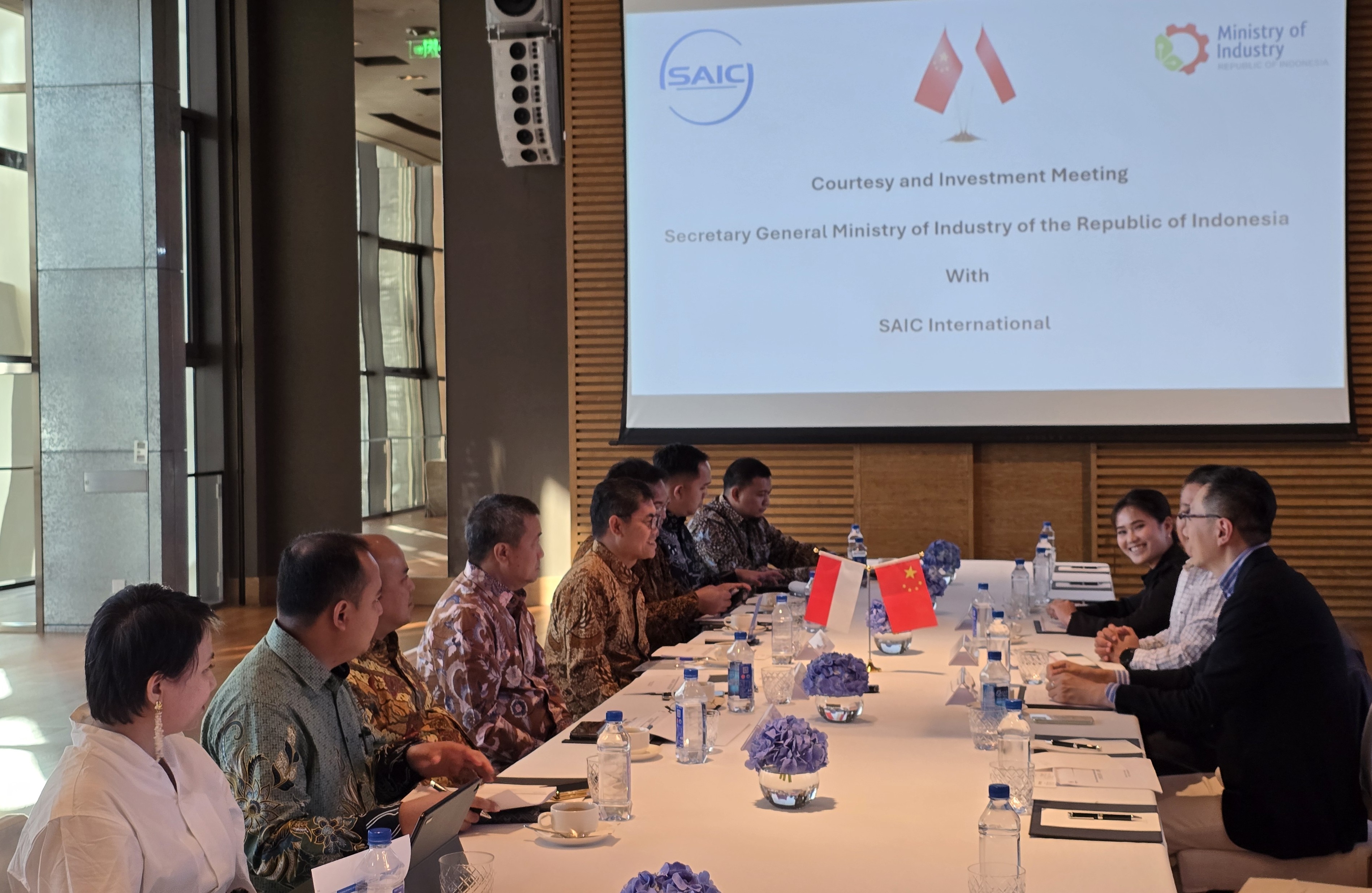The Indonesian Ministry of Industry is strengthening its collaboration with China’s state-owned SAIC Motor Corp., Ltd. to position Indonesia as a production and export base for electric vehicles. On October 9, 2025, Secretary General Eko S.A. Cahyanto, representing Minister Agus Gumiwang Kartasasmita, met with SAIC Motor Vice President Zang Qing in Shanghai to discuss deepening cooperation in eco-friendly automotive development and expanding exports in the ASEAN region.
“The Indonesian government appreciates SAIC Group’s contribution to supporting the development of the electric vehicle industry in Indonesia. We hope this cooperation continues by increasing environmentally friendly vehicle product lines suitable for Indonesian consumer characteristics,” Eko said in an official statement.
Local Manufacturing, Battery Production, and Supplier Integration
SAIC Motor, headquartered in Shanghai, ranks among China’s largest automotive producers, with brands such as Wuling, MG, Baojun, and Maxus. The company has four production bases worldwide: Pakistan, India, Thailand, and Indonesia. PT SGMW Motor Indonesia, SAIC’s local subsidiary, has operated a manufacturing facility and supplier park in Cikarang since 2015.
PT SGMW produces 13 of its 19 vehicle models locally and has developed MAGIC Battery Wuling, a local battery production facility contributing to Indonesia’s national EV ecosystem.
“We appreciate PT SGMW Motor Indonesia’s production of electric commercial vehicles with local content levels above 40%. This demonstrates a strong commitment to supporting government policies to accelerate the transition to a low-emission automotive industry,” Eko added.
PT SGMW collaborates with over 77 local suppliers from tier 1 to tier 3 and aims for BEV local content levels between 60-80%. For battery production, PT SGMW partners with PT Gotion and CATL through PT Unified Advanced Battery System Indonesia (UABS).
Driving ASEAN Export Ambitions with Government Support
By 2025, PT SGMW targets that exports will contribute over 11% of total production, reaching nearly 10,000 units exported to 15 countries. The company focuses on developing ICE, HEV, and BEV vehicles and plans to start producing PHEVs. Upcoming products include the SUV-C, designed for fuel efficiency and faster initial acceleration.
SAIC targets expanding market share in ASEAN, supported by over 170 sales and service outlets in Indonesia for Wuling, MG, and Maxus. The company is also developing a dual-brand showroom in Jakarta as part of its regional strategy.
SAIC seeks continued government support, including the extension of PPNDTP incentives for BEV passenger vehicles under 10 seats and BEV buses, and expanding these incentives to commercial BEVs like the MitraEV. Support is also requested for Wuling and MG vehicles using HEV, PHEV, and Range-Extended Electric Vehicle (REEV) technologies under the Low Carbon Emission Vehicle (LCEV) category.
Policy Alignment and Incentives for a Greener Future
Eko affirmed the Ministry of Industry’s appreciation for PT SGMW’s investments and achievements in Indonesia’s electric vehicle sector. “The proposals for the continuation and expansion of PPNDTP incentives for commercial BEVs are currently under internal government discussion,” he said.
Kemenperin encourages PT SGMW to expand its product lineup tailored to Indonesian consumer preferences and to increase investment to boost local content value.
The government also supports SAIC’s efforts to increase electric vehicle export capacity from Indonesia to reinforce the country’s role as an EV production and export hub in ASEAN.
“We hope SAIC can provide further details about its next investment plans in Indonesia, particularly concerning electrification platform development and new technologies,” Eko stated.
He stressed that strategic collaboration between the government and global automotive industry players like SAIC is crucial to accelerating Indonesia’s transition to electric vehicles. “Indonesia is committed to becoming a main player in the global EV supply chain, and we see SAIC as an important partner in realizing this vision,” he said.
Kemenperin continues to foster a conducive investment climate with incentives for electric vehicle production and components, including batteries and electric drive systems.
“Through strong synergy between government and industry, we are optimistic Indonesia can become the electric vehicle hub of the region,” Eko concluded.
PHOTO: KEMENPERIN
This article was created with AI assistance.
Read More






 Friday, 27-02-26
Friday, 27-02-26







